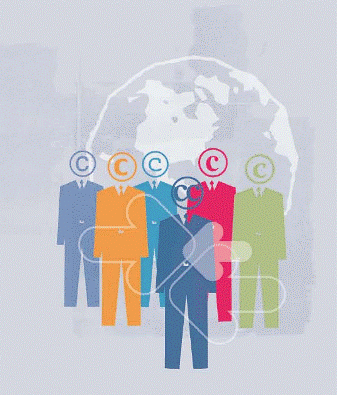To understand each person behavior we need to have clear some concepts such as:
· Individual Differences: The way in which factors such as skills, abilities differ from one individual to another.
· Personality: A relatively stable set of characteristics that influence an individual’s behavior.
The Trait Theory gives us the “Big Five” personality traits: Extraversion, agreeableness, conscientiousness, emotional stability and openness to experience.
The Integrative Approach describes personality as a composite of an individual’s psychological processes; personality dispositions include: Emotions, cognitions, attitudes, expectancies and fantasies.
When talking about organizations there are also some characteristics of personality
· Core self-evaluation (CSE): Personality traits that refers to self-concept. It is comprised of:
Ø Locus of control: Internal control Vs. External control
Ø Self-esteem: Feeling of self-worth
Ø Generalized self-efficacy: Believe in owns capabilities
Ø Emotional stability
· Self-monitoring: The extent to which people base their behavior on cues from other people and situations
· Affect (positive, negative): Tendency to accentuate the positive or negative aspects.
Myers-Briggs Type Indicator (MBTI) Instrument: An instrument developed to measure Carl Jung’s theory of individual differences.
Social Perception:
The process of interpreting information about another person. There are three categories of factors that influence our perception about another person: Perceivers, target person and the situation.
There are five barriers to social perception: Selective perception; stereotyping; first-impression error; projection: “the false-consensus effect”; and self-fulfilling prophecies: Pygmalion effect.
Impression Management Techniques:
· Self-enhancing: Name dropping, managing ones appearance, self-descriptions
· Other-enhancing: Flattery, favors, agreement
· Social identity-based impression management
Attribution Theory:
A theory that explains how individuals pinpoint the causes of their own behavior and that of others, it can be internal or external.
Attribution Biases: Fundamental Attribution Error, self-serving bias.
ATTITUDES
A psychological tendency expressed by evaluating an entity with some degree of favor or disfavor.
· ABC Model of an attitude: Affect, behavioral intentions, cognition
· Cognitive Dissonance: A state of tension that is produced when an individual experiences conflict between attitudes and behavior.
· Work attitudes:
Ø Job satisfaction: A pleasurable or positive emotional state resulting from the appraisal of one’s job or job experiences. Organizational Citizenship Behavior (OCB), Workplace Deviance Behavior (WDB).
Ø Organizational commitment: The strength of an individual’s identification with an organization. It consists of: Affective commitment, continuance commitment, normative commitment.
VALUES
Enduring beliefs that a specific mode of conduct or end state of existence is personally or socially preferable to an opposite or converse mode of conduct or end state of existence.
· Work Values: Achievement, concern for others, honesty, fairness.
To what do you attribute the success of JICA?
After having heard about JICA (Japan International Cooperation Agency) and the testimony of Yasuko, I can attribute the success of this company to the help and contributions that it has given to other countries and to the help of voluntary workers. JICA is an Agency that is owned by the Japanese government and its mission is divided into four categories: Addressing the global agenda, reducing poverty through equitable growth, improving governance and achieving human security. For the achievement of those missions, JICA has developed four main strategies: Integrated assistance, seamless assistance, promoting development partnerships and enhancing research and knowledge-sharing. These characteristics have given success to JICA because with this metodology the Japanese government can create a reciprocity relationship with other countries and can implement its Foreign Policy.
BIBLIOGRAPHY
· Harrison, D.A., Newman, D.A., Roth, P.L. 2006. How important are job attitudes?
· Nelson, D.L. & Quick, J.C. 2010. Organizational Behavior: Science, The Real World and You. South-Western College Publication, 7th. Ed.
· http://www.jica.go.jp/english/
· Yasuko. Aid worker of JICA in Colombia.
Image: http://www.docstoc.com/docs/39407152/Organizational-Behavior-Values-Attitudes-Personality-and
Image: http://www.docstoc.com/docs/39407152/Organizational-Behavior-Values-Attitudes-Personality-and


No hay comentarios:
Publicar un comentario